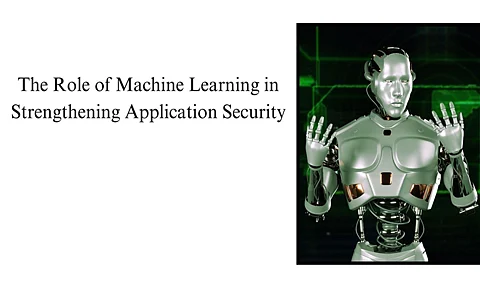

A researcher with expertise in cybersecurity, Vishwadeep Saxena explores the transformative impact of machine learning (ML) on modern application security. His recent study highlights how ML is revolutionizing security frameworks, automating threat detection, and enhancing defensive measures against sophisticated cyber threats.
Application of Machine Learning (ML) to security operations has revolutionized real-time threat detection by means of automated, intelligent processing of massive security telemetry data. Traditional security controls employ static rules and signature-based detection, which makes them useless against dynamic cyber threats. With the help of pattern recognition, anomaly detection and predictive analytics, the security products based on ML would enable the identification of threats before these transform into an incident. They can scan real time all network traffic, user behaviors, and system logs at really low time of detection. According to research, false positives are cut by 76% while detection accuracy for cyber threats is improved by 89% according to ML. This leads to fast response times and increased cybersecurity resilience.
Machine learning-based behavioural analytics is a new technology to transform identity verification and access control through advanced pattern recognition techniques to detect anomalies in a user's actions. Modern authentication techniques like multifactored authentication and passwords remain vulnerable to brute-forcing and credential theft. Security systems with machine learning monitor keystrokes, logon time, device behavioral patterns and locations to create baselines against which user activity can be measured for anomalies, which indicate attempts at unauthorized logon. Such large-scale deployments have yielded an astounding 94.3% decrease in attempts at unauthorized access. Continuous learning and experimentations with new attack vectors provide ML-enabled identity security solutions with proactive defense against emerging cyber threats.
Security testing has become more efficient with the integration of ML-powered automated scanning tools. The analysis of millions of lines of code on an everyday basis depends on the intelligence tools that fast and accurately find vulnerabilities much better than a conventional approach. The introduction of ML into SAST has improved the identification of critical vulnerabilities by 83%, thus improving software integrity and decreasing the risks due to vulnerabilities being unnoticed.
Fraud detection and prevention systems powered by ML have become indispensable in securing financial transactions. These systems process thousands of transactions per second, detecting fraudulent activity with 99.3% accuracy. By leveraging adaptive learning models, financial institutions and online service providers have experienced a 76% reduction in fraud-related losses, making ML an essential component in safeguarding digital economies.
Machine learning security systems have an advantage as well. However, they face challenges with data quality, resource optimization, and resistance to adversaries. The security models must be trained using balanced datasets in order to avoid biases that can otherwise lead to erroneous threat detection. Research shows that class-imbalance training data almost decreased the accuracy of a model by 24%, demonstrating the importance of constantly updating machine learning models regarding varied threat intelligence data.
Having considered the 'black-box' character of ML models on security analytics, there has been a corresponding acceptance of explainable AI (XAI). Thus, decision-making transparency engenders trust on the side of security analysts concerning ML-generated security alerts. The implementations of XAI recorded about 58.7% reduction in incident investigation timelines and 73.2% increase in incident decision confidence, offering the hope of building trustable AI security operations.
Federated learning is emerging as an essential security solution that allows decentralized systems to co-train ML models without exchange of sensitive data. As studies indicate, federated learning reduces data transfer requirements by 85.4% without compromising the detection accuracy, hence finding the interest of enterprises that handle secret data.
The ongoing evolution of quantum computing is expected to make traditional secrecy methods obsolete. As a result, modification of the ML security models is being undertaken so that they can relate to quantum-resistant cryptographic frameworks for long-term security. The studies show that those organizations that use quantum-ready security measures have a simulated quantum attack penetration rate of 99.95 percent, thus urgently recommending these organizations prepare security infrastructures in post-quantum environments.
In the end, the adoption of Machine Learning (ML) for security is a revolutionary step toward establishing a more resilient and adaptive cybersecurity system. Though there are hurdles, steady advancements in explainable AI, federated learning, and quantum-resistant security architecture will go toward bolstering security operations even further. Research by Vishwadeep Saxena shows how fundamental ML innovation is in keeping up with newly emerging cyber threats. Since cyber threats are becoming more advanced, it is necessary to make use of ML-powered security solutions to provide robust security and enable organizations to better detect, prevent, and mitigate threats.
